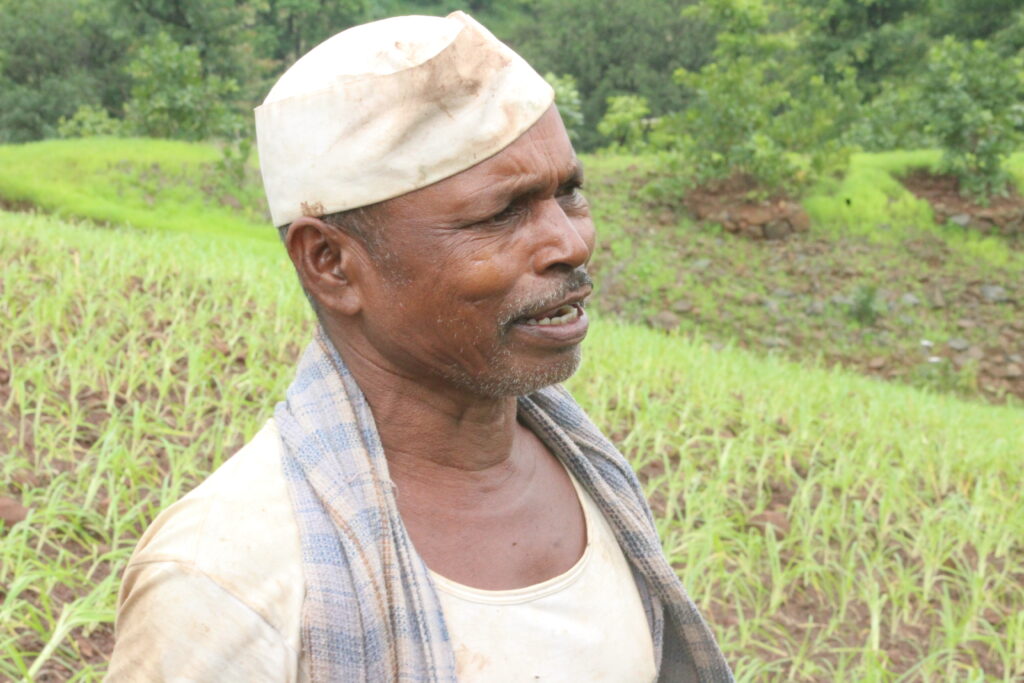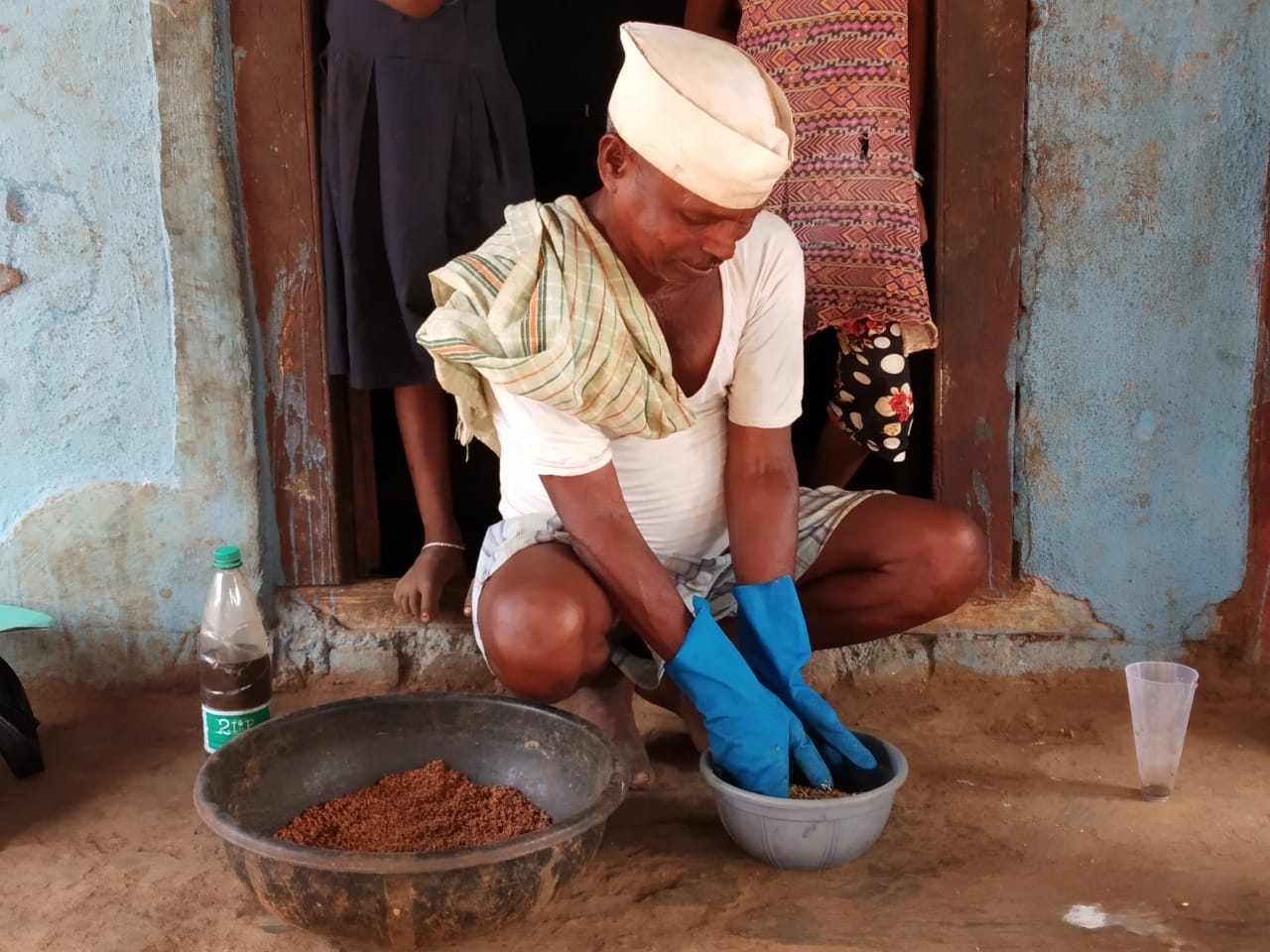Shantaram Choudhary, Age 56 years, Sadakwadi village, Mokhada block, Palghar district, Maharashtra

The 7 acres of land that I own lies on a hill slope and its productivity is low. The farm pond that was constructed last year will become a water source for the coming season, however, so far I have taken crops only in the rainy seasons, such as rice, finger millets (locally known as Nagali), some lentils and oilseeds. Besides these crops, we also have several mango trees on the farm planted through MGNREGA work. In good seasons we earn around INR 10000 from the fruits, while agricultural income from rice sale is around INR 20000 per year. To supplement this income we rear chickens and goats and also do wage work either in the village or outside. I have 11 members in the family, including my 4 grandchildren and therefore we prefer to work within the village under MGNREGA.
Most farmers in my area hesitate to use chemical fertilisers. This is not out of choice, but out of compulsion. Buying them from the market increases input costs, which we cannot afford. Still, I buy seeds and urea from the market for rice, to get more yield. We understand the simple equation – more fertilisers mean more production. But this is not so with Nagali that is cultivated by the traditional method. To prepare the land before sowing, we burn stack of wood, dry grass, cow dung cakes etc on the farm and broadcast Nagali seeds. We neither purchase any fertiliser from market nor do we use any homemade fertiliser. Nagali is an important crop for us but remains neglected and that is getting reflected in its decreasing production year by year.
This situation started changing in 2019 when I changed my conventional method of Nagali cultivation. With support from Pragati Abhiyan, a Nashik-based organisation working with rural communities, I adopted a totally organic and systematic process for cultivation. In this, first, we created saplings of the home conserved Nagali seeds by creating nursery beds. In three weeks saplings got ready for plantation. To ensure proper spacing between the saplings, we used ropes and marked the plantation spots with red ribbons. I used this new method only on a half-acre area while using the traditional method on the remaining half-acre. I was surprised to see the striking difference in the plant growth, and so were other farmers and Agricultural officers who visited to see the results of the new method. The height and spread of the plant were good compared to the traditional method. I applied Jeevamrut (liquid organic fertiliser) and sprayed neem oil, which boosted the growth further. The production also increased with this method; I got a total of 3 quintals from half acres compared to 1.5 quintals from the traditional plot. As I believed earlier, chemical fertilisers are not necessary to increase the yield, you can get quality production with organic methods.
Next year, in 2020, I expanded areas for Nagali cultivation to acres. I also supported 10 more farmers to adopt the organic method for Nagali cultivation, who were motivated to use it after seeing the results on my farm. We have formed a Farmers Group to share our knowledge and resources. The organisation has given a cycle weeder and thresher to the group, which we use among ourselves. This year, the total production of Nagali was 7 quintals. After many years, there was enough stock of Nagali in the house. Especially, at a time when we were village bound due to the pandemic.
Nagali has now returned to our daily diet. Earlier we used to make Bhakari from Nagali flour, now the women have learned to make a variety of sweets like laddus and khir. Our children love these delicious varieties as much as they like bhakari. Nagali, once a diminishing superfood, has again made a secure place in our lives.
“I know that farming is hard labour, but when you get a good yield you feel you are being paid for your hard labour. Looking at the quality and quantity of Nagali in my farm, I got this satisfaction after many years.” – Shantaram Choudhary
Sangita Jadhav

